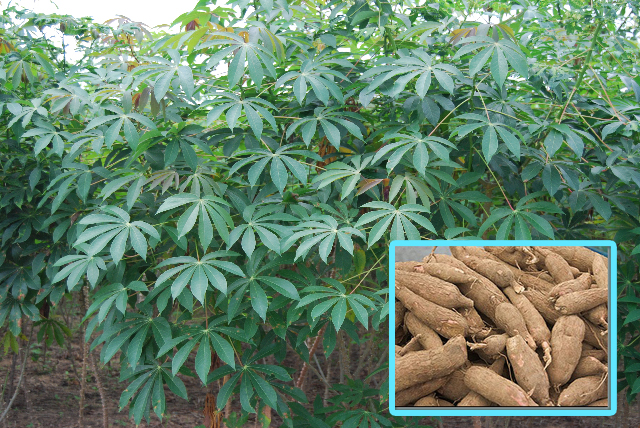Florence Afriyie Mensah
Kumasi, Dec. 01, GNA – The International Institute for Tropical Agriculture (IITA) has introduced an electronic agricultural extension services (e-agriculture) to ensure that research, innovation, and new technologies are accessible to cassava farmers.
The technology known as AKILIMO (smart agriculture) will be used to generate agricultural specific recommendations for farmers and enhance productivity in cassava production.
The integrated electronic bundle has information on fertilizer, inputs, dealers, marketers and processors, to help strengthen the agricultural value chain.
It will also help farmers to understand the traceability and decide on best planting time and harvesting, a situation that will propel sustainable markets for produce and products.
The tool has been customized in different forms – the paper vase version, unstructured supplementary service data (USSD) code, interactive voice response (IVR), and videos.
Dr Thompson Ogunsanmi, Scaling Specialist, African Cassava Agronomy Initiative (ACAI) at the IITA, explained that farmers could use the technology by themselves and at times, with assistance from extension officers.
He was speaking at the opening of a training of trainers meeting, to formally introduce actors in the cassava value chain to the AKLIMO project integration in Kumasi.
“Agriculture is to be made agribusiness with profit in perspective.
Without profit, farmers should not be engaged unnecessarily to go through a lot of processes without getting anything out of it.
He said this concept is currently being used in Nigeria, Burundi, Tanzania, Rwanda, D. R Congo and now Ghana.
We are even looking at adopting the AKILIMO tool into other crops to expand farmers’ profit margins and livelihoods”, he said.
He said the IITA was supporting technically to see how information could be processed in the right perspectives for farmers to access on time for their operations.
Participants at the training were drawn from the Ministry of Food and Agriculture (MoFA), Ghana Export Promotion Authority (GEPA), Ghana Enterprises Agency (GEA) and agro-based industries.
Mr William Agyei-Manu, Executive Director, Ghana Cassava Center of Excellence, an NGO with the aim of supporting cassava enterprises development in Ghana and believes that the IITA’s technology could complement the existing cassava projects in Ghana – Cassava Productivity and Cassava amplified Seed Entrepreneurship Projects.
He said the Center was currently working with 1.2 million actors including farmers, marketers, aggregators, equipment fabricators and exporters to deepen their understanding in cassava production, processing, treatment and marketing.
Mr. Agyei-Manu stated that Ghana could improve upon its cassava utilization prospects and take advantage of the export markets.
Ghana is the second largest producer of cassava in Africa and fifth in the world.
The country in 2020 produced 24 million metric tonnes of cassava.
Cassava is the most important root crop in Ghana. The estimated total land under cassava production is 1,027,755 hectares, yielding an estimated 22 million metric tons of fresh cassava in 2019, according to the Ghana Export Promotion Authority.
More than 70% of farmers engage in cassava production, and the sector contributes to about 22% of Agricultural GDP.
As part of the three day training programme, the team visited cassava farmers at Akuakrom, one of the leading communities in cassava production in the Ashanti Region to highlight on the AKILIMO concepts, assess farmers’ inputs and called for formation of stronger cooperatives to access loan facilities.

GNA